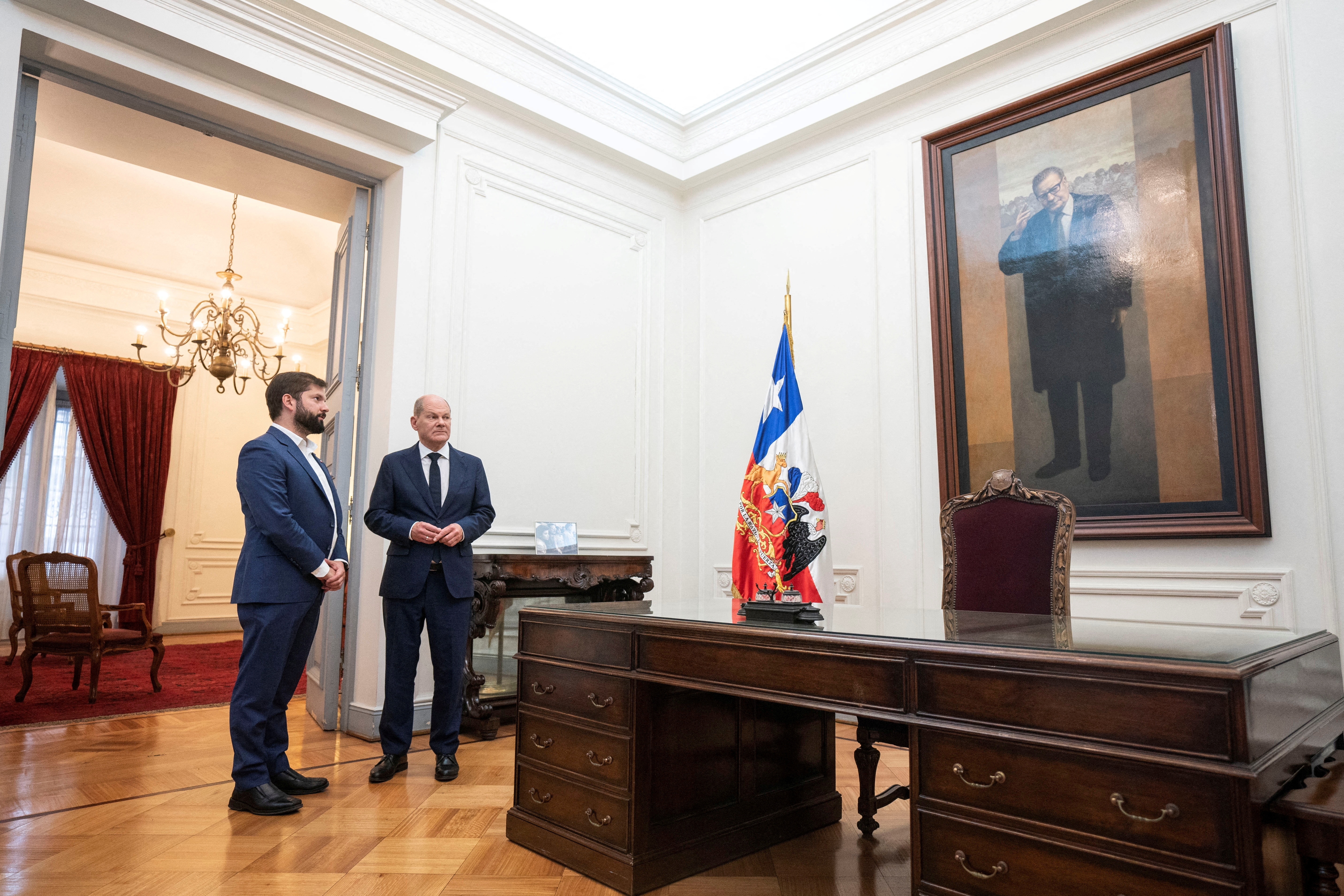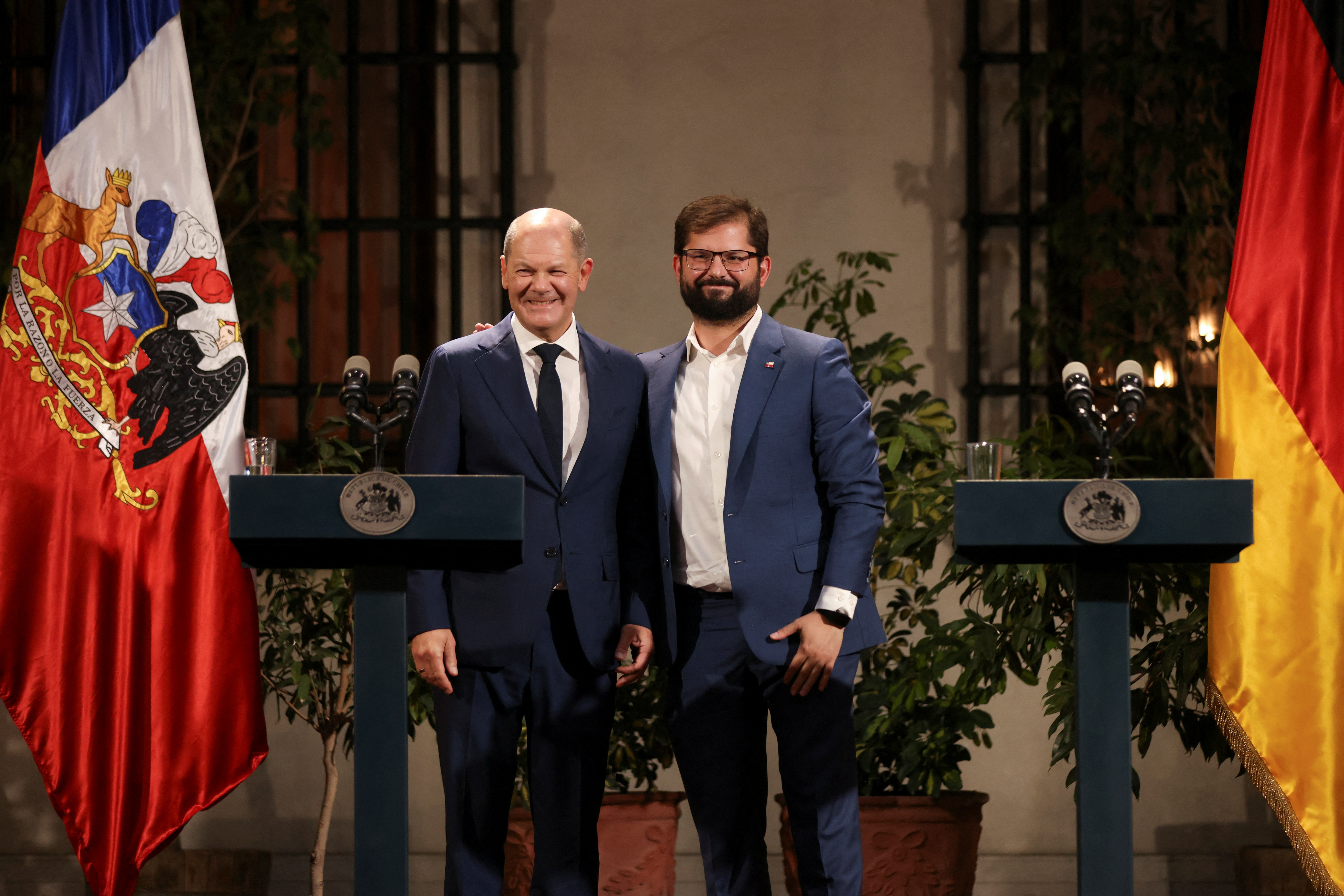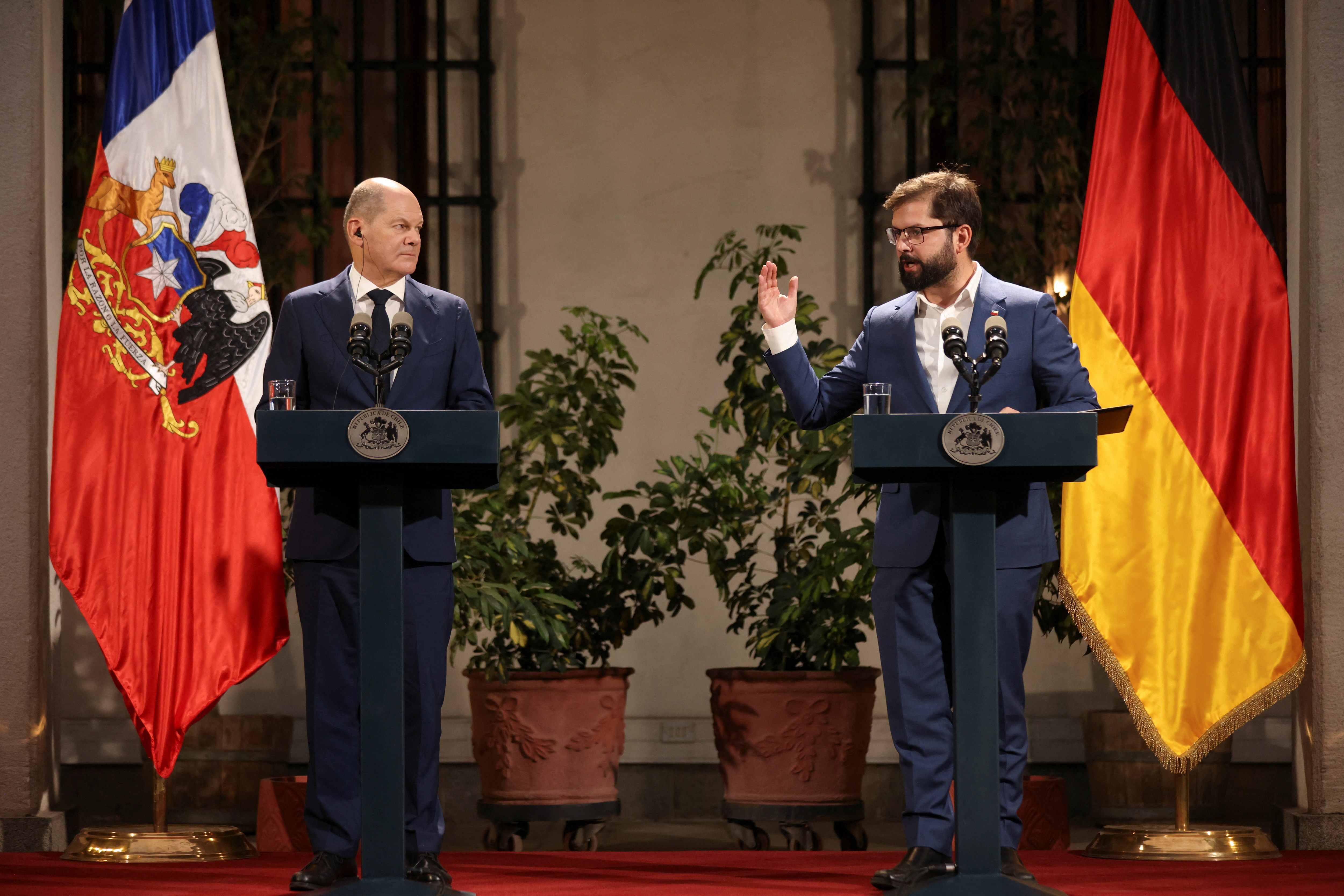German Chancellor Olaf Scholz announced a new, expanded commodities partnership with Chile on Sunday during a tour of South America that Berlin hopes will help secure more access to critical minerals key to the transition to a green economy.
Europe’s largest economy has fallen behind in the race for critical minerals in part due to a distaste for the dirty business of mining as well as faith in the open market, German government officials say.
That has led to a reliance on China, which has invested widely in the mining sector in resource-rich South America and in processing commodities.
Now though, soaring demand for critical minerals and geopolitical concerns are sparking a push to better secure and diversify supply for example through offtake agreements, stakes in mines or possibly the establishment of Germany’s own processing capacity.
Germany, with its powerful auto industry, is particularly mindful of securing more lithium, the ultra-light metal key to making batteries for electric vehicles. Argentina and Chile sit atop South America’s “lithium triangle” which holds the world’s largest trove of the ultra-light battery metal.
The new German-Chilean agreement, which replaces a decades-old partnership, aims to intensify cooperation in the sector, for example through an annual bilateral forum and state instruments to promote trade like investment guarantees.
Given the environmental, labor and social concerns regarding mining – that have sparked anger and thwarted projects in the sector – Germany’s high standards made it an ideal partner, Scholz said.
“We want to help Chile on the way to a sustainable mining sector,” Scholz said in a news conference with his Chilean counterpart in Santiago de Chile on the second leg of his tour.
A new act that came into force this year for example insists high standards are observed throughout companies’ supply chains. Germany also wanted to ensure mining generated more jobs in the source countries, Scholz said.
“There is this expression – extractivism – that everything is just extracted from the earth. But that’s not a good thing, when that’s all that happens,” Scholz said.
“The question is: can we not ensure that the first round of processing, that generates hundreds if not thousands of jobs, can take place in the (source) countries? That would also save on a lot of transport.”
A Bolivian-German lithium joint venture signed in 2018 fell apart two years later amid domestic political turmoil.
Related Galleries:




